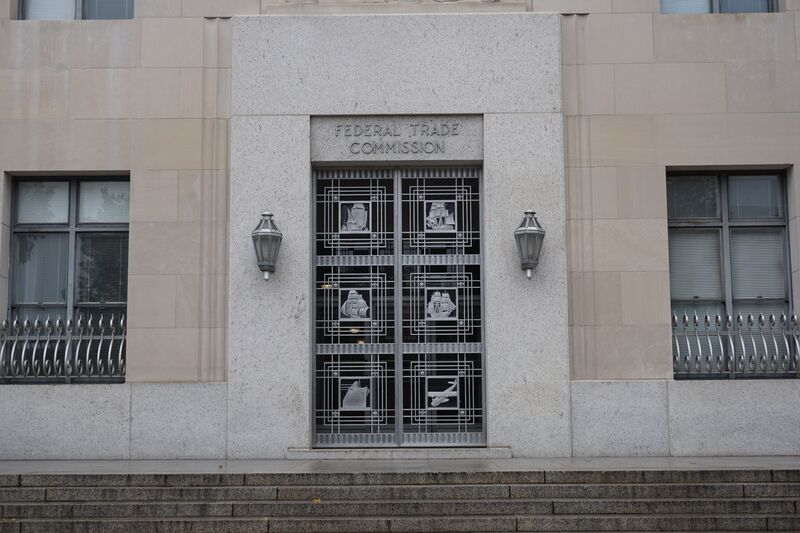The FTC’s New Section 5 Policy Statement: An Analysis

By Sarah Pelton*
On November 10, 2022, the Federal Trade Commission (“FTC”) followed up on its promise of restructuring fundamental aspects of antitrust law. In a new statement (the “2022 Statement”) passed in a 3-1 vote, the FTC issued new policy objectives regarding “unfair methods of competition” under Section 5 of the FTC Act.[1] The Statement follows the FTC’s 3-2 vote in 2021 to rescind the 2015 Statement of Enforcement Principles (the “2015 Statement),[2] which was criticized as “contraven[ing] the text, structure, and history of Section 5[,] largely writ[ing] the FTC’s standalone authority out of existence.”[3]
Generally, the FTC’s policy statements serve the purpose of “assist[ing] the public, business community, and antitrust practitioners by laying out the key general principles that apply to whether business practices constitute unfair methods of competition under Section 5 of the FTC Act.”[4] While these statements do not have the force of law, they still serve as an important signal as to how to the FTC may challenge conduct.
In the 2022 Statement, the FTC revealed that it will no longer use the rule of reason analysis outlined in the 2015 Statement for Section 5 violations[5]; instead choosing to focus on “stopping unfair methods of competition in their incipiency based on their tendency to harm competitive conditions.”[6] The 2022 Statement adopts a new method of analysis for “unfair methods of competition.” A “method of competition” can be proven indirectly and is defined as conduct that “implicate[s] competition,” but excludes market conditions that the firm had no power in creating.[7] “Unfair” conduct “goes beyond competition on the merits.”[8] The 2022 Statement adopts two criteria to assist the FTC’s consideration of whether a firm’s conduct “goes beyond competition on the merits” and will weigh the criteria on a sliding scale.[9] The FTC noted that “[w]here the indicia of unfairness are clear, less may be necessary to show a tendency to negatively affect competitive conditions . . . . [and] [e]ven when conduct is not facially unfair, it may violate Section 5.”[10] Additionally, the FTC states that “[b]ecause the Section 5 analysis is purposely focused on incipient threat to competitive conditions, this inquiry does not turn to whether the conduct directly caused actual harm in the specific instance at issue.”[11]
In their accompanying statement, the majority noted that “[r]eactivating Section 5 in a way that is fully faithful to the authority that Congress gave us is critical for promoting the rule of law and for ensuring the democratic legitimacy of our work.”[12] They mentioned the concerns of Congress after the Standard Oil case and prior to passing the FTC Act that “the rule of reason generated erratic, contradictory results, prolonged the resolution of cases, and handed unchecked discretion to the judiciary.”[13] The majority celebrated the return to the plain text of Section 5, stating that “[w]hile courts have applied the rule of reason and consumer welfare standards in the context of the Sherman Act, there is no basis in precedent for applying them wholesale to standalone Section 5.”[14] In a separate statement, Commissioner Bedoya, joined by the majority, argued that the 2022 Statement makes a return to fairness, stating that the business justifications to antitrust analysis allowed in the rule of reason “has been responsible for concentrating American markets and eliminating small businesses from the competitive landscape.”[15]
Commissioner Wilson’s dissent, however, issues an especially hard-hitting alternative view. She criticizes the 2022 Statement’s approach as “requir[ing] balancing among multiple goals without identifying the complete array of special interests to be protected, or the weights to be assigned to any of them.”[16] With no hierarchy of rules to balance these potentially competing interests, enforcement can be too amorphous and “be subject to the whims and political agendas of sitting commissioners.”[17]
What do these changes mean for businesses? In the FTC’s attempt to outline key principles to assist the business community in compliance with the antitrust laws, the 2022 Statement’s unstructured framework sows confusion and uncertainty. Businesses have relied on precedent from courts that allows them to present the procompetitive effects of a transaction before it is condemned. Now, any conduct the FTC determines as “facially unfair” is presumed to be per se illegal, and any conduct not deemed “facially unfair” is no longer subject to the traditional rule of reason analysis. In sum, the 2022 Statement’s expansive nature affirms the FTC’s intent to reach categories of conduct that were previously labeled off-limits in the 2015 Statement, but in doing so, subjects businesses to new areas of legal risk.
* J.D. Candidate, Class of 2024, Sandra Day O’Connor College of Law at Arizona State University.
[1] Fed. Trade Comm’n, Policy Statement Regarding the Scope of Unfair Methods of Competition Under Section 5 of the Federal Trade Commission Act, No. P221202 (Nov. 10, 2022), https://www.ftc.gov/legal-library/browse/policy-statement-regarding-scope-unfair-methods-competition-under-section-5-federal-trade-commission.
[2] Fed. Trade Comm’n, Statement of Enforcement Principles Regarding “Unfair Methods of Competition” Under Section 5 of the FTC Act (Aug. 13, 2015) [hereinafter “2015 Statement”], https://www.ftc.gov/system/files/documents/public_statements/735201/150813section5enforcement.pdf (This statement largely limited the FTC’s enforcement ability under the FTC Act, using a “framework similar to the rule of reason” to address “acts or practices that are anticompetitive but may not fall within the scope of the Sherman or Clayton Act.”).
[3] Fed. Trade Comm’n, Statement of the Commission on the Withdrawal of the Statement of Enforcement Principles Regarding “Unfair Methods of Competition” Under Section 5 of the FTC Act (July 9, 2021), https://www.ftc.gov/legal-library/browse/statement-commission-withdrawal-statement-enforcement-principlesregarding-unfair-methods.
[4] Fed. Trade Comm’n, supra note 1, at 2.
[5] Fed. Trade Comm’n, supra note 2, at 1 (“an act or practice challenged by the Commission must cause, or be likely to cause, harm to competition or the competitive process, taking into account any associated cognizable efficiencies and business justifications . . .”).
[6] Fed. Trade. Comm’n, supra note 1, at 10.
[7] Id. at 8 (These include “high concentration or barriers to entry.”).
[8] Id.
[9] Id. at 9 (First, “the conduct may be coercive, exploitative, collusive, abusive, deceptive, predatory, or involve the use of economic power of a similar nature.” Second, “the conduct must tend to negatively affect competitive conditions. This may include, for example, conduct that tends to foreclose or impair the opportunities of market participants, reduce competition between rivals, limit choice, or otherwise harm consumers.”).
[10] Id.
[11] Id. at 10.
[12] Lina M. Khan, Chair, Fed. Trade Comm’n, Statement on the Adoption of Enforcement Policy Regarding Unfair Methods of Competition Under Section 5 of the FTC Act (Nov. 10, 2022), https://www.ftc.gov/legal-library/browse/cases-proceedings/public-statements/statement-of-chairkhan-commissioners-slaughter-bedoya-on-policy-statement-regarding-section-5.
[13] Id. at 1.
[14] Id. at 4.
[15] Fed. Trade Comm’n, Statement of Commissioner Alvaro M. Bedoya, On the Adoption of
the Statement of Enforcement Policy Regarding Unfair Methods of Competition Under Section 5 of the FTC Act, No. P221202, at 6 (Nov. 10, 2022), https://www.ftc.gov/legal-library/browse/casesproceedings/public-statements/statement-of-commissioner-bedoya-chair-khan-commissionerslaughter-on-policy-statement-regarding-section-5.
[16] Fed. Trade Comm’n, Dissenting Statement of Commissioner Christine S. Wilson Regarding the “Policy Statement Regarding the Scope of Unfair Methods of Competition Under Section 5 of the Federal Trade Commission Act”, No. P221202, at 8 (Nov. 10, 2022), https://www.ftc.gov/legallibrary/browse/cases-proceedings/public-statements/dissenting-statement-of-commissioner-wilsonon-policy-statement-regarding-section-5.
[17] Id. (citing PHILLIP AREEDA & DONALD F. TURNER, ANTITRUST LAW 25 (1st ed. 1978) (antitrust enforcement that seeks to pursue conflicting interests “would involve courts in essentially political decision-making for which there are no appropriate legal criteria and in a regulatory, supervisory role for which they are ill-suited.”)).


